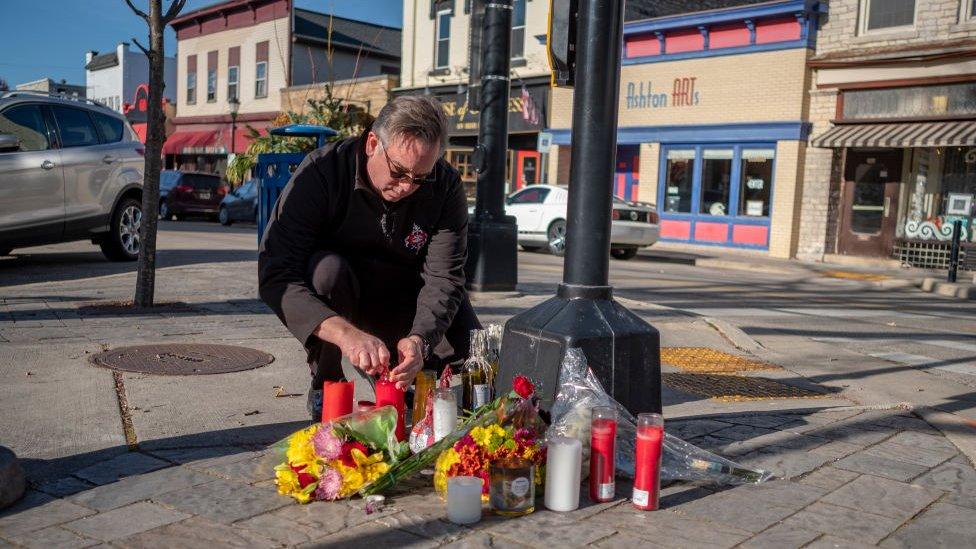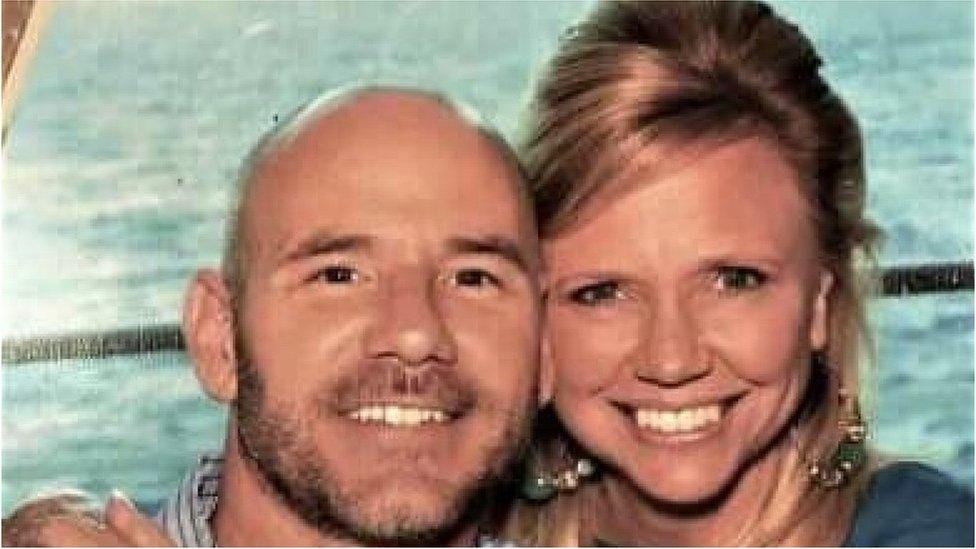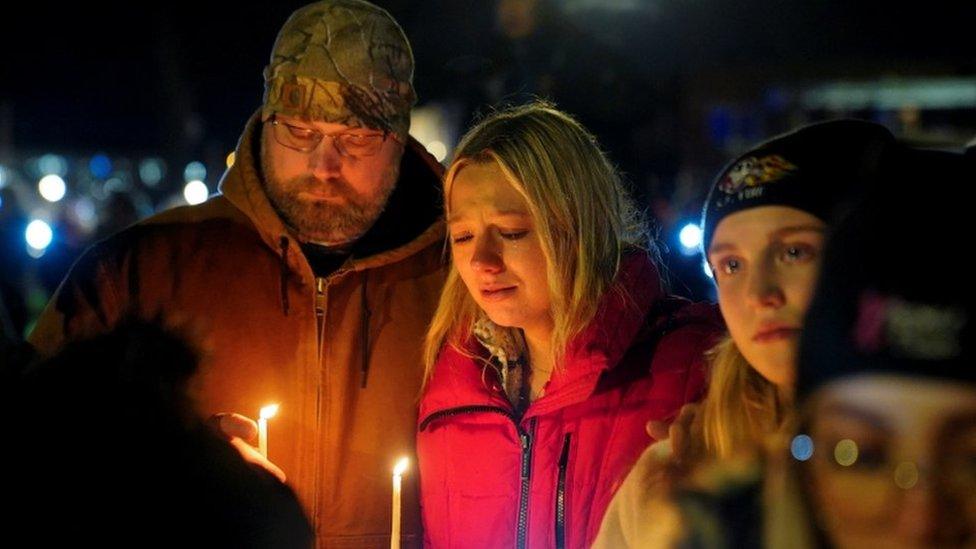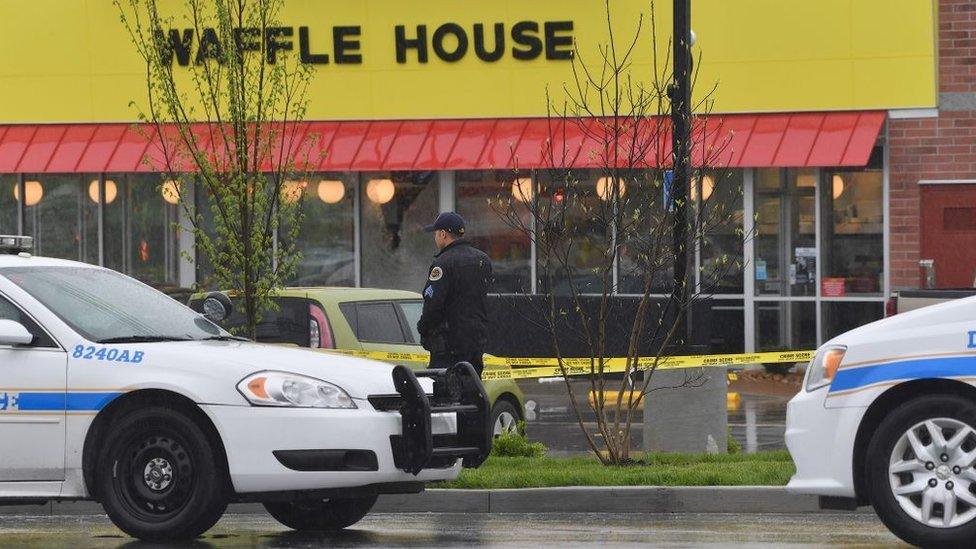Waukesha trial: US man sentenced to life for car-ramming attack
- Published
Watch: Emotional testimony from victims families
A Wisconsin judge has sentenced a man who killed six people and injured 62 by driving through a Christmas parade last year to life in prison.
A jury convicted Darrell Brooks last month after prosecutors argued he had shown "utter disregard for human life".
The court also heard emotional testimony from dozens of survivors and families of victims during sentencing.
Brooks represented himself in the four-week trial, often interrupting court proceedings.
In her sentencing on Wednesday, Judge Jennifer Dorow said Brooks had chosen "a path of evil".
She ordered him to serve six life sentences - one for each murder victim - and symbolically added another 1,067 years in jail for his other crimes.
The judge said that he was "fuelled by anger and rage" and that his case was an example of when "evil people do bad things".
The killings took place at an annual Christmas parade in the city of Waukesha on 21 November 2021 when the attacker sped down the road in his red SUV.

A memorial for victims grew in the days after last year's attack
Among the victims of the deadly attack were marching school band members and a dance troupe of Wisconsin grandmothers.
Those killed were Virginia Sorensen, 79; LeAnna Owen, 71; Tamara Durand, 52; Jane Kulich, 52; Wilhelm Hospel, 81; and eight-year-old Jackson Sparks.
Sparks' mother, Sheri Sparks, told the court during sentencing hearings that her son was "violently ripped" from her family's life.
"Do you have any idea how gut wrenching it is to explain to your 12-year-old son that his little brother isn't going to make it?" Ms Sparks said in her impact statement.
Sean Sorenson, whose mother Virginia died in the attack, said the driver was "simply a repulsive man who has shown no remorse for his actions".
Survivors said the attack left them suffering from PTSD, recurring nightmares and lasting physical injuries.
The killer, a native of nearby Milwaukee, had just had a domestic incident with his ex-girlfriend when he drove through the parade.
He was convicted of 76 charges, including homicide, hit and run, bail jumping and battery.
Before his conviction, he wept and told the jury he did not intentionally run over parade-goers, saying that his "conscience is clear". He added during his sentencing that he has "repented and asked God for forgiveness".
He initially pleaded not guilty on grounds of mental illness, but later withdrew the plea without explanation.
During the trial, he claimed not to recognise his own name, repeatedly heckled Judge Dorow and objected to prosecutors' questions. He was also at one point seen rolling his eyes during victims' testimony.
During Wednesday's sentencing, the judge ordered him to be removed from the court after he refused to refrain from outbursts.
His mother and grandmother also spoke during sentencing, appealing to the judge for leniency due to his lifetime of mental health issues.
But the judge said any issues with mental health could not excuse his crimes.
"Do the mentally ill commit atrocious crimes? They certainly do but this is not one of those instances," the judge said.
Related topics
- Published24 November 2021

- Published27 October 2022

- Published5 August 2020
